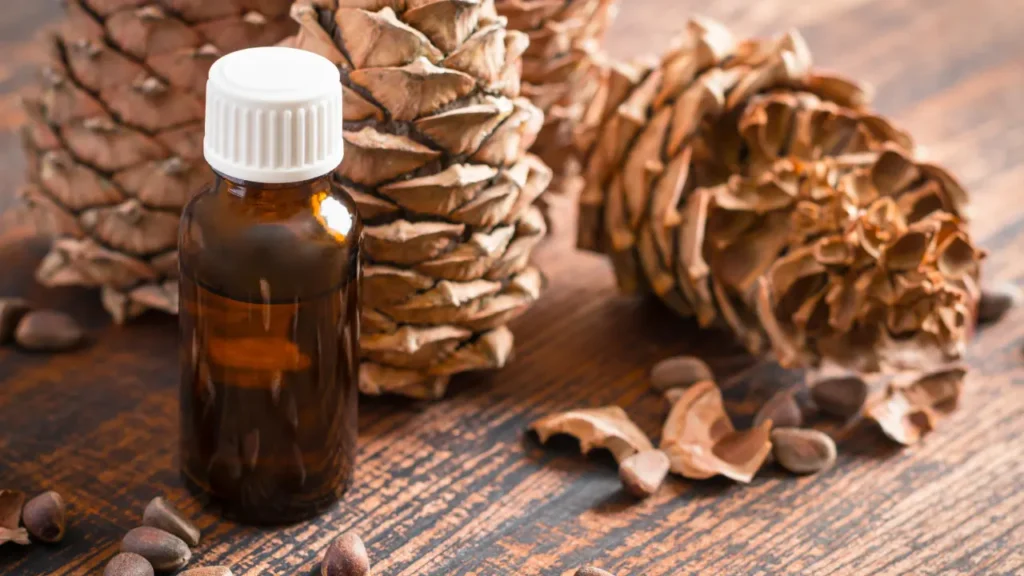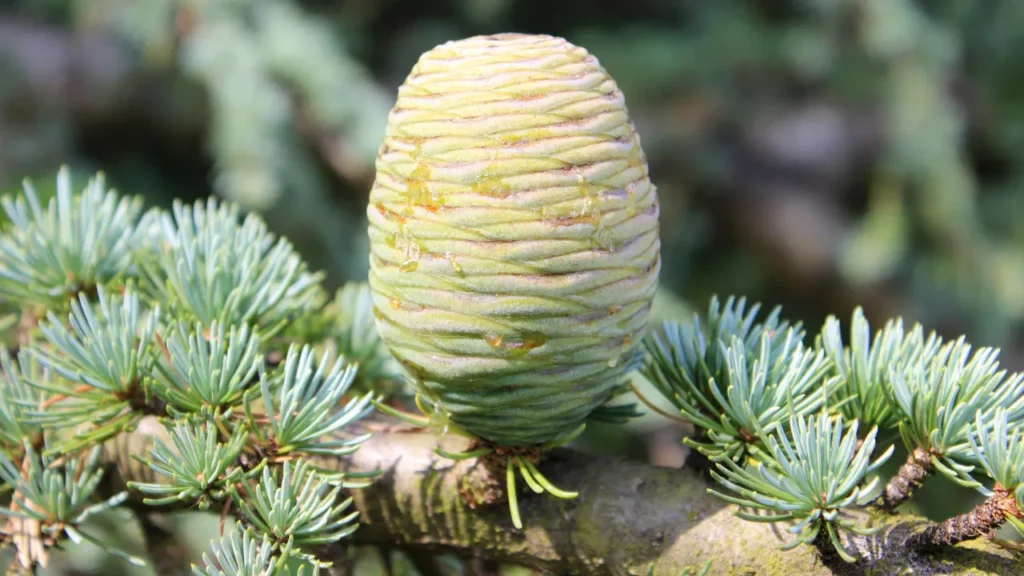The pinaceae family of trees includes the species of tree known as the Atlantic cedar, or Cedrus Atlantica in the scientific community. This evergreen conifer is indigenous to Morocco, Algeria, and Tunisia’s Atlas Mountains. Due to their numerous health advantages, Atlantic cedar’s wood, bark, and needles have been used in traditional medicine for generations. As a dietary supplement, Atlantic cedar has grown in popularity recently. This article aims to give a thorough analysis of Atlantic cedar, covering its characteristics, health advantages, recommended dosage, negative effects, possible drug interactions, and appropriate usage.
You May Also Like:
Should You Try CBD for Focus? Here Are the Facts.
CBD for Concentration: The Productivity Hack for Energy and Focus
Atlantic Cedar: Benefits, Dosage, Side Effects, Drug Interactions, And Other Important Information is an original (NootropicsPlanet) article.
Nature of Atlantic Cedar
The height of an Atlantic cedar tree can reach 40 meters high. Its straight trunk can grow up to 2 meters in diameter, and it has a conical appearance. The Atlantic cedar has a unique scent and a grayish-brown bark. The dark green needles can reach a maximum length of 3 cm. The brown cones measure 6 to 12 cm in length.
The durability, resistance to rot and insect damage, and sweet aroma of Atlantic cedar wood make it highly valued. The essential oil from Atlantic cedar’s wood, bark, and needles contains a variety of bio-active substances with therapeutic benefits.
Health Benefits of Atlantic Cedar
The health advantages of Atlantic cedar essential oil include:
- Anti-inflammatory Properties: Compounds in Atlantic cedar essential oil have anti-inflammatory effects. By lowering cellular inflammation, these substances can lessen pain and swelling.
- Antibacterial Properties: The essential oil of Atlantic cedar possesses antibacterial properties. It can stop the development of viruses, fungi, and bacteria.
- Calming Effects: Both the body and the mind are calmed by the aroma of Atlantic cedar essential oil. It can ease tension and anxiety while encouraging relaxation.
- Respiratory Health: By easing congestion and encouraging mucus expulsion, Atlantic cedar essential oil can assist to improve respiratory health. Additionally, it can assist in easing cough and other respiratory issues.
- Skin Health: The antibacterial properties of Atlantic cedar essential oil can aid with wound healing, infection prevention, and acne reduction. Scars and stretch marks can also be made to appear less noticeable with its aid.

Chemistry
The medicinal properties of Atlantic cedar essential oil are the result of a complex chemistry that contains a number of bio-active components. Steam distillation is used to separate the essential oil from the Atlantic cedar’s wood, bark, and needles.
Monoterpenes, sesquiterpenes, and diterpenes are some of the chemical components of Atlantic cedar essential oil that are most prevalent. Coniferous trees frequently contain monoterpenes, which are chemicals with two isoprene units. Alpha-pinene, which makes up to 40% of the essential oil of Atlantic cedar, is the monoterpene that is most prevalent in the oil. Beta-pinene, limonene, myrcene, and delta-3-carene are other monoterpenes that can be found in Atlantic cedar essential oil.
Sesquiterpenes, which are molecules with three isoprene units, are present in a wide range of plants. Cedrol, which makes up to 30% of the oil, is the most prevalent sesquiterpene in Atlantic cedar essential oil. The sesquiterpenes beta-eudesmol, alpha-bisabolol, and farnesene are also present in the essential oil of Atlantic cedar.
Coniferous trees have chemicals called diterpenes, which have four isoprene units. Cedrene, which makes up up to 20% of the oil, is the diterpene found in the most significant amounts in Atlantic cedar essential oil. Dehydroabietic acid and sandaracopimaric acid are two more diterpenes that can be found in Atlantic cedar essential oil.
Physiological Properties of Atlantic Cedar
The physiological processes through which Atlantic cedar essential oil works are intricate and poorly understood. However, research has revealed that the bio-active elements in Atlantic cedar essential oil can interact with a variety of enzymes and receptors in the body to produce the above mentioned health advantages.
Alpha-pinene: This is one of the primary ingredients of Atlantic cedar essential oil. Coniferous trees frequently contain the terpene alpha-pinene, which has been demonstrated to have analgesic and anti-inflammatory properties. It is thought that alpha-pinene interacts with the body’s cannabinoid receptors to lessen pain and inflammation.
Beta-pinene: Beta-pinene is yet another substance found in Atlantic cedar essential oil. Beta-pinene is also another terpene with anti-inflammatory and anti-microbial properties.
The TRPV1 receptor, which is involved in pain perception and inflammation, has been shown to interact with beta-pinene.
Limonene: Another substance included in the essential oil of Atlantic cedar is limonene. It has been shown that the terpene limonene, which is frequently present in citrus fruits, possesses antioxidant properties. It is thought that limonene can interact with the enzymes in the liver that break down toxins, aiding in the body’s detoxification process.
Cedrol: The sesquiterpene alcohol cedrol can be found in the essential oil of Atlantic cedar. Cedrol can interact with the GABA receptors in the brain and has many sedative and relaxing effects. A neurotransmitter called GABA is in charge of lowering anxiety.
The essential oil of Atlantic cedar also contains other bio-active substances such as thujopsene, beta-eudesmol, and alpha-terpineol in addition to these. These substances have analgesic, anti-inflammatory, and anti-microbial properties.


Optimal Dosage of Atlantic Cedar
Use caution when using Atlantic cedar essential oil because it is a highly potent oil. Your age, weight, and overall health status are just a few of the variables that affect the ideal dosage of Atlantic cedar essential oil. Typically, 1-2 drops of Atlantic cedar essential oil should be used with 10 cc of a carrier oil, like almond or coconut oil.
Three to five drops of Atlantic cedar essential oil can be used in a vaporizer or diffuser for aromatherapy. Before using Atlantic cedar essential oil physically or in aromatherapy, it is vital to dilute it.
Side Effects of Atlantic Cedar
When used sparingly, Atlantic cedar essential oil is usually regarded as safe. However, some people can encounter allergic reactions that cause skin rashes or breathing issues. Before applying Atlantic cedar essential oil topically, a patch test is advised. Without first seeking medical advice, avoid using Atlantic cedar essential oil on children and pregnant women.


Potential Substance Interactions with Atlantic Cedar
There is little to no research done on the possible chemical interactions of Atlantic cedar. However, it is advised against combining Atlantic cedar essential oil with other drugs without first talking to your doctor.
Responsible Uses of Atlantic Cedar
Responsible and cautious use of the essential oil of Atlantic cedar is crucial. It is advised to get premium essential oils from reliable vendors. The essential oil of Atlantic cedar should be kept out of the sun and in a cool, dark location. It should be kept out of reach of children.
Atlantic Cedar:
Conclusion
Overall, the physiological properties of Atlantic cedar essential oil are intricate and involve interactions between numerous bio-active substances and a variety of receptors and enzymes in the body. To completely understand the properties of Atlantic cedar essential oil and its potential medicinal benefits, more research is required. Before starting an Atlantic cedar supplement, be sure to talk to your doctor first.


References:
- Chemical Composition of 8 Eucalyptus Species’ Essential Oils and the Evaluation of Their Antibacterial, Antifungal and Antiviral Activities, BMC Complementary and Alternative Medicine, 12, 81. Retrieved from https://www.ncbi.nlm.nih.gov/pmc/articles/PMC3439292/
- Chemical Composition of 8 Eucalyptus Species’ Essential Oils and the Evaluation of Their Antibacterial, Antifungal and Antiviral Activities, BMC Complementary and Alternative Medicine, 12, 81. Retrieved from https://bmccomplementalternmed.biomedcentral.com/articles/10.1186/1472-6882-12-81
Important Note: The information contained in this article is for general informational purposes only, and should not be construed as health or medical advice, nor is it intended to diagnose, prevent, treat, or cure any disease or health condition. Before embarking on any diet, fitness regimen, or program of nutritional supplementation, it is advisable to consult your healthcare professional in order to determine its safety and probable efficacy in terms of your individual state of health.
Regarding Nutritional Supplements Or Other Non-Prescription Health Products: If any nutritional supplements or other non-prescription health products are mentioned in the foregoing article, any claims or statements made about them have not been evaluated by the U.S. Food and Drug Administration, and such nutritional supplements or other health products are not intended to diagnose, treat, cure, or prevent any disease.
